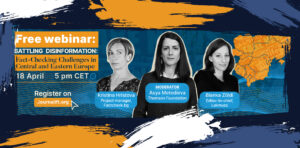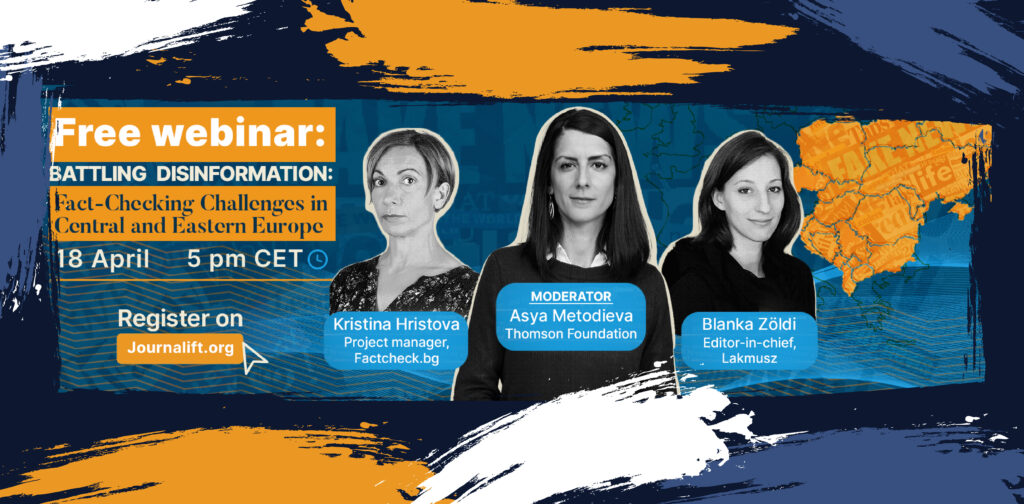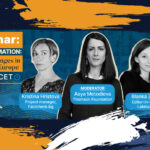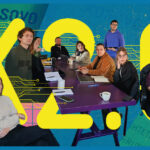Đurđa Radulović, from the Center for Investigative Journalism of Montenegro (CIN-CG), is this year’s first-prize winner of the EU Investigative Journalism Award in Montenegro. Đurđa reported on obstetric violence, revealing outdated practices in Montenegrin maternity wards that the World Health Organization (WHO) recommends reducing or abolishing.
In a world of investigative journalism dominated by headlines about crime and corruption within political and police structures, rare stories about the daily challenges of citizens hold a great significance. In her piece titled "Silence Surrounding Violence - Maternity Wards Violate WHO Recommendations" (“Nasilje o kom se ćuti - porodilišta krše preporuke SZO”), Đurđa uncovers that certain childbirth practices in Montenegro often take place without the woman's consent. This, alarmingly, represents a form of obstetric violence that is sanctioned under law in various countries.

“Women in Montenegro are not informed about what constitutes obstetric violence, but they are aware that their experiences in maternity wards are humiliating, traumatic and painful.
Often, someone from the staff might make comments like, "It didn't hurt you while you were making it," just so they make sure the woman doesn't leave the hospital without some form of humiliation related to her body. Women, for the most part, are not aware that they have the right to know what each type of procedure during childbirth entails, that they have the right to consent to or refuse procedures, and to actively collaborate with the doctor. They are often left with a bitter aftertaste upon giving birth, not knowing exactly why- simply because they haven't realised that their body autonomy was taken away during their stay in the maternity ward.”
“Montenegrin society is stuck in deep patriarchy, transitional pains and poverty”, she notes. She also acknowledges this is a global issue.
“The perspective of the world in which we live is male, or more precisely, patriarchal. Childbirth, female’s body physiological process, has been patriarchalised, primarily through medicalisation and the interest of scientists and doctors (who have mostly been men throughout the development of this civilization). We have only recently started discussing that the entire medical field as we know it, is primarily based on male physiology. Medications and therapies should be more adapted to the female body. In various ways, a woman is disconnected from her body in this civilization.”

As a mentee in the Media for All project, Đurđa was trained to use the ECR tool. With the help of this tool, data from 706 respondents was collected for the purpose of the investigation.
The results revealed that in most cases, invasive interventions such as episiotomy, Kristeller manoeuvre, enema and induced labour, occurred without women's consent or proper information. This is jeopardising rights to life, health, and physical integrity, as stated by the WHO. In addition, results also display that many women experienced childbirth as a traumatic experience.
“Some women don't want to remember, don’t want to become aware that something was traumatic. But, it is definitely easier for them to share their experience through surveys. I love the fact that this tool offers anonymity, allowing people to fully open up. One of the many consequences of the patriarchal environment is the way some women talk about other women giving birth and expressing pain. They are by default considered spoiled, demanding and unbearable.”

Since the newsroom is generally engaged in in-depth research of human rights, CIN-CG supported Đurđa throughout the investigation. Topics like human and civil rights, healthcare, social inequalities and gender issues are often being overshadowed by larger investigations in the domain of high-level corruption and politics. Recognition for reporting on such topics can contribute to bigger visibility.
While exploring women’s rights and health, Đurđa points out that it is extremely important not only to have female investigative journalists, but also for them to bring women's experiences and their perception of the world into the public domain.
“I am very pleased that the European Union Award recognises this. I have noticed such stories both this year and last year at the award ceremony. Journalism is crucial, as well as non-governmental organisations (NGOs) and civic activism. Everything outside the government sector actually yields the biggest and most significant results, at least in Montenegro.”
Đurđa emphasises that there are many perspectives for reporting when it comes to women’s health and body. She is addressing these topics from an essayistic perspective for the ROZA, a portal for left-wing and feminist politics, which is the first and only portal of its kind in Montenegro.
Her research highlights the importance of incorporating diverse perspectives. Additionally, it serves as a catalyst for broader societal conversations and policy changes, pushing towards a more equitable and informed approach to women's health worldwide.































